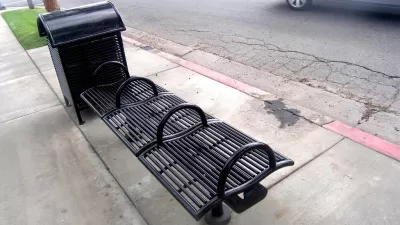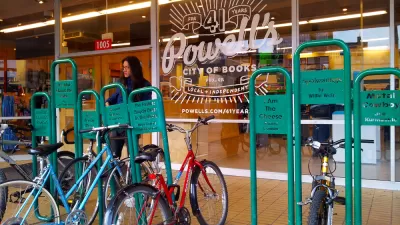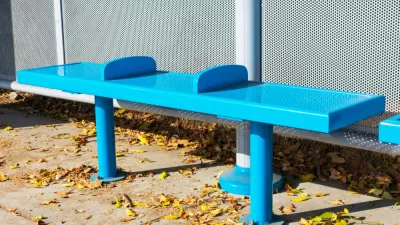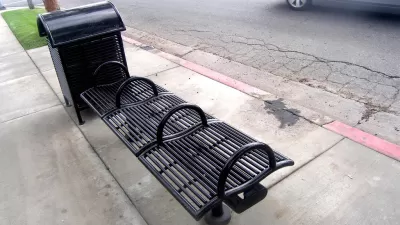In an effort to make public spaces more inclusive, a new pocket park in the Callowhill neighborhood will seek input from people experiencing homelessness on how to make the space more welcoming and functional.

Unlike most public parks, which actively discourage people experiencing homelessness from using their facilities, a new Philadelphia pocket park will be designed, in part, by and for people experiencing homelessness. Alfred Lubrano reports on the project, funded through a $82,500 grant from the William Penn Foundation and managed by the Sunday Breakfast Rescue Mission, the city's oldest and largest homeless shelter.
According to the National Recreation and Park Association, "nearly half of urban park and recreation agency directors in the United States view the homeless population as a 'nuisance that impedes other people’s enjoyment of park resources.'" In many cases, park authorities use "spikes, bumps, uncomfortably designed benches, and other pieces of so-called hostile architecture" to discourage long-term and overnight use. By contrast, the Philadelphia pocket park, located on a small stretch of North Pearl Street adjacent to Sunday Breakfast, seeks to provide a welcoming space for all community members. "The ideas for what the park will look like will come out of what residents and community members are interested in seeing," said Heidi Segall Levy, director of design services for the project. As of now, there is no plan for public bathrooms, "which foster safety concerns," but park plans call for hand-washing stations, storage space, and comfortable seating.
"We believe a successful public park is one that doesn’t exclude by design or stewardship anybody by race, ethnicity, housing status, or socioeconomic status,” said Judilee Reed, the William Penn Foundation’s program director of creative communities. Construction on the park is scheduled to start in 2022.
FULL STORY: A park that welcomes homeless people, partially designed by homeless people, will be a Philly first

Alabama: Trump Terminates Settlements for Black Communities Harmed By Raw Sewage
Trump deemed the landmark civil rights agreement “illegal DEI and environmental justice policy.”

Study: Maui’s Plan to Convert Vacation Rentals to Long-Term Housing Could Cause Nearly $1 Billion Economic Loss
The plan would reduce visitor accommodation by 25% resulting in 1,900 jobs lost.

Planetizen Federal Action Tracker
A weekly monitor of how Trump’s orders and actions are impacting planners and planning in America.

Baltimore Ordered to Improve Sidewalk Accessibility
The city is one of many to face lawsuits for failing to comply with the Americans with Disabilities Act.

This Toronto Suburb Has More Bus Riders Than Columbus, Ohio
Brampton, Ontario used gradual improvements in service to prove that if you build it, they will ride.

Paris Bike Boom Leads to Steep Drop in Air Pollution
The French city’s air quality has improved dramatically in the past 20 years, coinciding with a growth in cycling.
Urban Design for Planners 1: Software Tools
This six-course series explores essential urban design concepts using open source software and equips planners with the tools they need to participate fully in the urban design process.
Planning for Universal Design
Learn the tools for implementing Universal Design in planning regulations.
Smith Gee Studio
Alamo Area Metropolitan Planning Organization
City of Santa Clarita
Institute for Housing and Urban Development Studies (IHS)
City of Grandview
Harvard GSD Executive Education
Toledo-Lucas County Plan Commissions
Salt Lake City
NYU Wagner Graduate School of Public Service





























